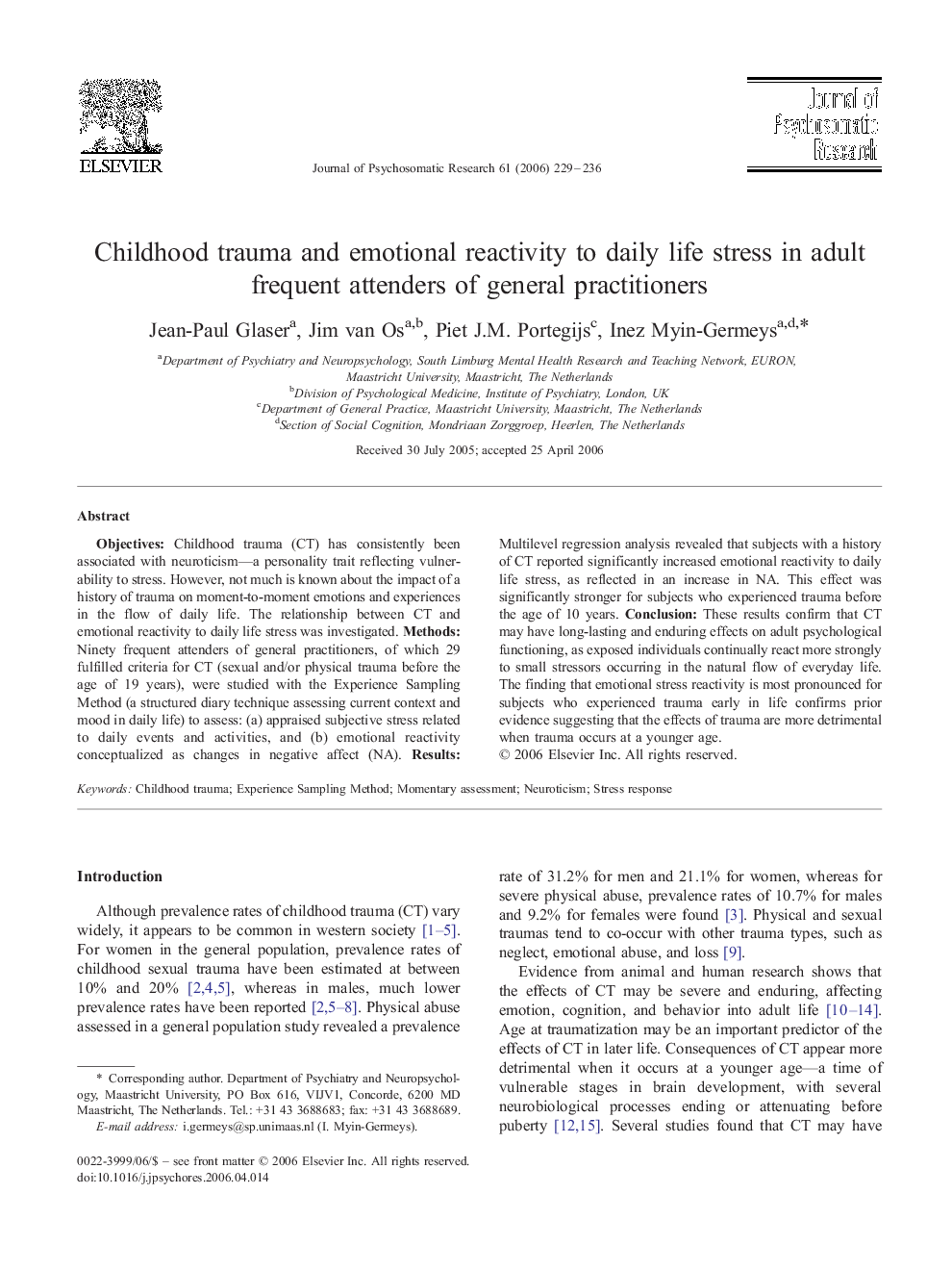| Article ID | Journal | Published Year | Pages | File Type |
|---|---|---|---|---|
| 950749 | Journal of Psychosomatic Research | 2006 | 8 Pages |
ObjectivesChildhood trauma (CT) has consistently been associated with neuroticism—a personality trait reflecting vulnerability to stress. However, not much is known about the impact of a history of trauma on moment-to-moment emotions and experiences in the flow of daily life. The relationship between CT and emotional reactivity to daily life stress was investigated.MethodsNinety frequent attenders of general practitioners, of which 29 fulfilled criteria for CT (sexual and/or physical trauma before the age of 19 years), were studied with the Experience Sampling Method (a structured diary technique assessing current context and mood in daily life) to assess: (a) appraised subjective stress related to daily events and activities, and (b) emotional reactivity conceptualized as changes in negative affect (NA).ResultsMultilevel regression analysis revealed that subjects with a history of CT reported significantly increased emotional reactivity to daily life stress, as reflected in an increase in NA. This effect was significantly stronger for subjects who experienced trauma before the age of 10 years.ConclusionThese results confirm that CT may have long-lasting and enduring effects on adult psychological functioning, as exposed individuals continually react more strongly to small stressors occurring in the natural flow of everyday life. The finding that emotional stress reactivity is most pronounced for subjects who experienced trauma early in life confirms prior evidence suggesting that the effects of trauma are more detrimental when trauma occurs at a younger age.
